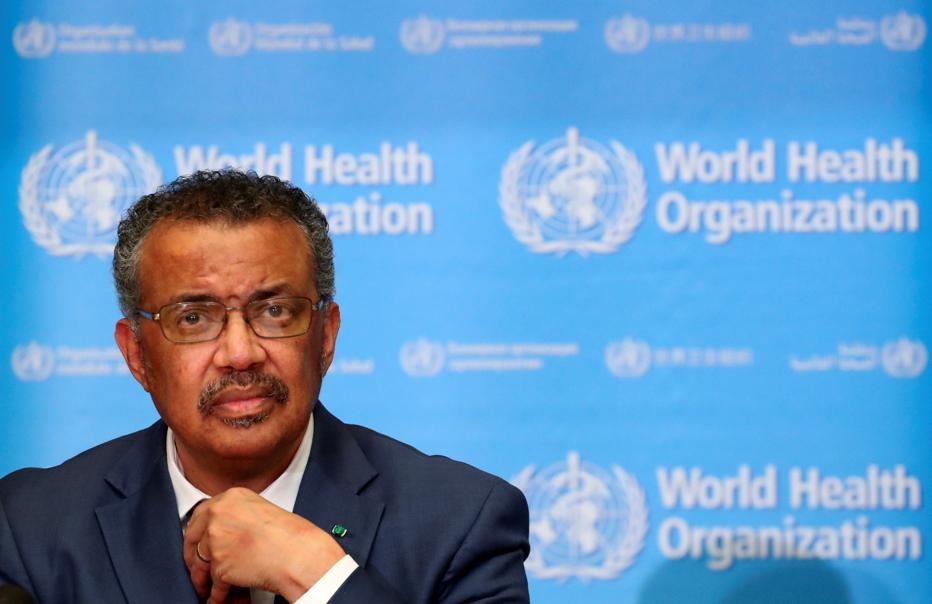The rapidly spreading coronavirus has wreaked havoc across much of the developed world, yet not a single case has been confirmed so far in Africa – the continent that’s least equipped to deal with the epidemic.
Health officials are still bracing themselves for the worst.
Two-way travel between Africa and China, the epicentre of the respiratory illness that’s infected more than 31 000 people since late December, has surged over recent years as they forged closer financial and political ties, raising the region’s risk of exposure.
About 20 African nations have already issued alerts of possible cases, and the World Health Organization has expressed concern that a widespread outbreak would overwhelm their fragile health systems.
“We are not waiting for an outbreak,” said Amadou Sall, a director at Institut Pasteur de Dakar, a bio-medical research centre in Senegal. “We’re anticipating it.”
Thirteen nations, including Nigeria, South Africa, Kenya and the Democratic Republic of the Congo, are seen as especially at risk and have been identified by the WHO as priority zones for containing the spread of the virus.
In KwaZulu-Natal, two patients suspected to have symptoms of the coronavirus were given the all-clear on Thursday by the local National Institute for Communicable Diseases, News24 reported.
The provincial MEC for health, Nomagugu Simelane-Zulu, pointed out that the cases were subsequently found to be false alarms after laboratory tests were conducted.
Simelane-Zulu added that, as a precaution, one case is being handled by the department at one of its facilities, while the other is currently being managed by a private healthcare facility in Durban.
“The department can confidently state that there are no confirmed cases because, even in the cases in question, neither of the patients presented with symptoms after 14 days of the incubation period for coronavirus.”
While the WHO declared coronavirus a public health emergency last month, it hasn’t recommended restrictions on trade or travel to and from China.
Even if Africa doesn’t suffer an epidemic, it faces risks from an economic slowdown in China, its most important trading partner.
Two-way trade between the continent and the Asian nation totaled more than $204 billion in 2018, data from the China-Africa Research Initiative at Johns Hopkins University School of Advanced International Studies shows.
A number of African governments have instituted measures aimed at detecting coronavirus cases, halting their spread and treating those who are infected.
Some are better equipped than others, having had recent experience in tackling other epidemics like Ebola and cholera.
A lot of progress has been made in dealing with highly pathogenic viruses since the Ebola outbreak, with many Africans having been trained to deal with them, according to Sall.
Laboratories and research centres have also been built, while new surveillance methods have been introduced, he said.
An Ebola outbreak in the Democratic Republic of the Congo that began in 2018 has infected about 3 350 people and killed 2 210.
About 70% of countries in the region established isolation facilities in response, according to Michel Yao, emergency operations program manager at the WHO’s Regional Office for Africa.
Medical personnel in the DRC have also had to contend with a measles outbreak that’s claimed at least 6 000 lives since the start of last year, while those in Mozambique faced a surge in reported cholera cases after it was hit by a tropical cyclone.
South Africa and Senegal have been conducting tests for the coronavirus for other countries in their respective regions.
Ghana, Madagascar, Sierra Leone and Nigeria also have the capacity to do sampling, and another 24 countries are set to join their ranks.
These are some of the measures African nations have taken:
Nigeria, Africa’s most populous nation, is among a number of countries where the response is likely to be inadequate, according to Oyewale Tomori, a professor and fellow of the Nigerian Academy of Science, whose research areas include infectious diseases and public health.
“If it comes, what next do you do?” he said. “Do you have the isolation wards where you can keep the people? Do you have proper systems of monitoring? Do you have laboratory diagnostics for it? In each of those areas, I don’t think we are measuring up to par and that is my worry.”
The Africa Centres for Disease Control and Prevention, which helps nations on the continent tackle and prevent infectious diseases, has also voiced concern about their capacity to cope with a wide-scale epidemic.
High population growth and unplanned urbanization have increased the risk of an outbreak starting and spreading, and governments have limited resource to respond, it said.
– Bloomberg




 Publications
Publications
 Partners
Partners











